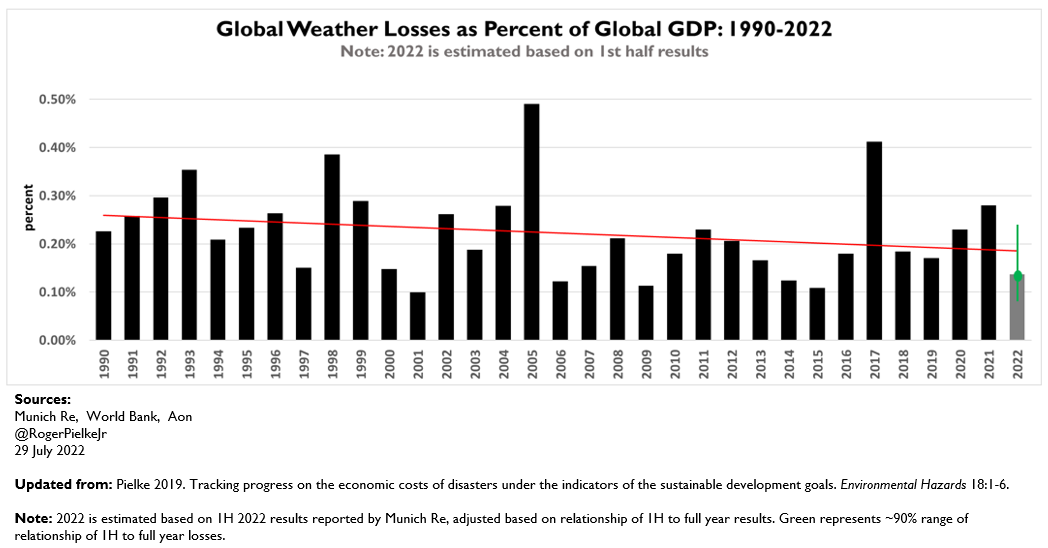Weekend Reading #6
Manchin Redux, US Tornadoes, London Fires & Men vs Women Athletic Performance
For this last weekend in July I have a range of interesting things to share. First, I’ll revisit last week’s discussion of U.S. climate policy after Senator Joe Manchin (D-WV) decided to support a climate bill after all. In another update, after skipping last year, Munich Re has just published its first half global catastrophe loss estimates — I’ll compare that to my initial estimates from two weeks ago.
Then, after the jump I’ll share some pretty incredible data on U.S. tornadoes and hail, a really well-done analysis of trends in fires in London and some thought-provoking data on differences in performance between elite men and women in running and swimming. Imagine, with a time machine, today’s women would medal in the men’s Olympics of 1972. Incredible.
If you are new here, welcome — you can read about what I am up to here. Also, I remain unable to access my Twitter account, frustratingly. After more 72 hours still no reply from Twitter support, so I’d really welcome your assistance in sharing this post via your social media channels. Hopefully, Twitter gets back to me soon.
Now to some data and analyses.
Senator Manchin has apparently changed his mind on supporting climate provisions in congressional legislation. Senator Tina Smith (D-MN) said of the reversal, “this is a big F-ing deal!' … [The] most significant action on climate and clean energy we've ever taken."
Around here we run the numbers. The figure below shows the difference in 2030 between (black bars) global emissions assuming “current policies” (actually, as of November 2021 by the Climate Action Tracker), and the blue bars showing (top) President Biden’s 50% emissions reduction target for 2030 and (bottom) the 40% reduction Democrats announced with Senator Manchin’s support.
If you have a hard time spotting the difference, that is understandable — the difference is 0.4 Gt carbon dioxide-eq in 2030 out of a global total of ~50 Gt carbon dioxide-eq. As I have often said, every little bit helps, but the planet won’t be saved or lost on one U.S. climate bill. The totalizing, apocalyptic characterizations are satisfying for some, I suppose, but the reality of the challenge of decarbonization is incremental, step-by-step. And this is a small step, at best.
Another update. Recently I shared projected 2022 catastrophe losses based on results from the first half on 2022, as reported by Aon. Since then Munich Re has released their results which are apples-to-apples with my long-term dataset (Aon has huge biases, unfortunately). So the graph below uses the Munich Re data, and I am happy to report that my earlier adjustments from Aon to Munich Re (because Aon over-eggs the pudding) was spot on. The bottom line stays the same: 2022 so far is on the lower end of catastrophe losses, cross your fingers for the next 6 months!
Let’s now take a quick look at U.S. tornadoes and hail incidence in 2022 (you won’t believe these data), trends in London fires (fascinating) and research on performance differences between men and women elite athletes in running and swimming (sure to make you think). You will have fun sharing these facts with friends over this late-July weekend, I am sure.






